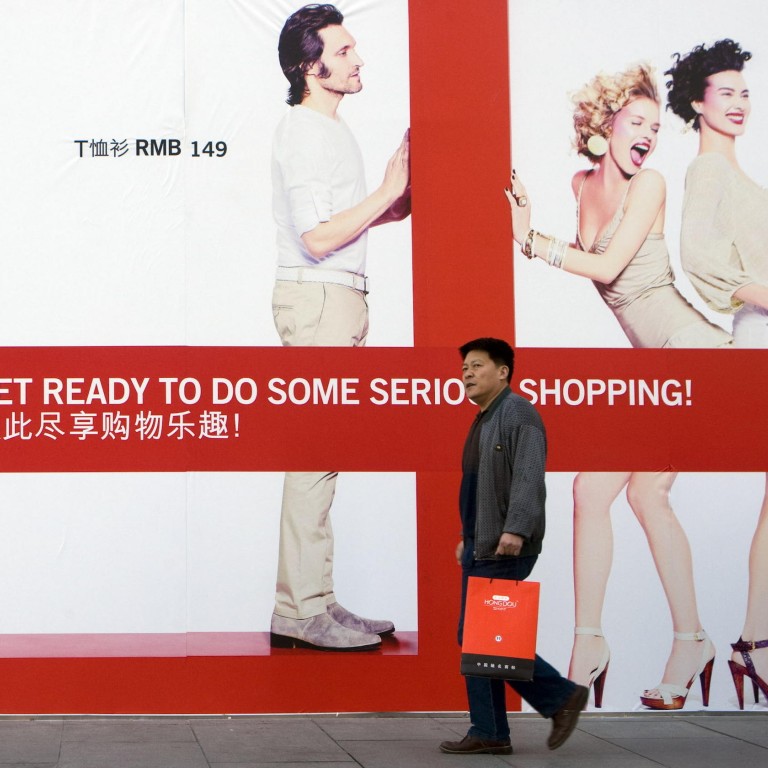
Fast fashion retailers offered special deals in shopping malls across China
Shopping centre landlords are cutting deals to attract tenants such Zara, H&M and Uniqlo because they help drive foot traffic to malls
Landlords of shopping centres on the mainland are aggressively pursuing leasing deals with international fast fashion brands as they brace for a looming supply peak of retail space.

"In some new malls in second- or third-tier cities, landlords are willing to take just a high single digit percentage of these tenants' turnover," said Frank Chen, executive director and head of China research for property consultancy CBRE.
"This is a very flexible arrangement, since tenants do not have to bear a fixed cost."
According to CBRE, new supply of retail space in 17 first- and second-tier cities monitored by the property consultant, such as Beijing, Tianjin, Hangzhou, Shanghai and Guangzhou, reached 2.2 million square metres in the third quarter, the highest ever additional supply released in a single quarter.
Total new supply of shopping space last year amounted to 4.3 million square metres, up from 3.6 million square metres in 2011, according to CBRE. New supply will continue to increase rapidly.
Thanks to their high profile and appeal to young customers, Chen said the presence of fast fashion brands such as Zara, Hennes & Mauritz (H&M), Uniqlo, C & A, and Forever 21 were able to attract foot traffic through the malls, and they also demand large spaces - typically occupying hundreds or even thousands of square metres in a shopping mall. For example Uniqlo has pre-leased a flagship store in Victoria Plaza in Guangzhou of more than 10,000 square metres, which will make it the biggest Uniqlo store in China.
According to CBRE Research's data, the four major fast fashion brands -Uniqlo, Zara, H&M, and C&A - together had 523 stores on the mainland by June, and 40 per cent of the stores were opened in the past 18 months.
Fast fashion refers to the speed at which new designs move from catwalk to consumer to capture current fashion trends.
Most landlords are happy to offer competitive leasing terms in order to attract fast fashion brands, said CBRE, noting that between this year and 2016 nearly 50 per cent of the supply of retail space in second-tier cities is expected to be found in emerging suburban hubs. In some second-tier cities like Shenyang, vacancy rates in retail centres are as high as 24 per cent.
According to a separate report published by CBRE, the total gross floor area of shopping malls currently under construction throughout the world is 32 million square metres; of which 16.8 million square metres, or more than half, is under construction in China.
Soaring new supply will force landlords to offer relatively more attractive tenancy conditions, it concluded.
"In some cases, landlords have agreed to set aside millions of yuan to promote the shopping mall, in a move to draw traffic," said Thomas Lam, the head of research and consultancy for Greater China at Knight Frank.
Lam said online shopping could be a concern for fast fashion brands in future but he expected international brands would continue their expansion in China, where there is a growing consumer market.

